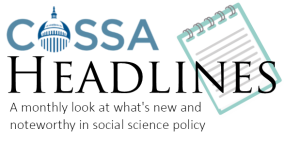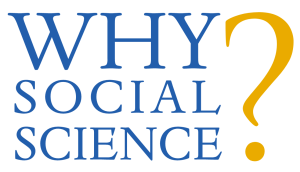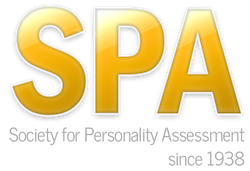Issue 19 (September 29)
NSF Seeking Comments on STEM Education Strategic Plan
The National Science Foundation (NSF) has announced it is accepting stakeholder comments on an upcoming Federal STEM Education Strategic Plan. This strategic plan, which is released roughly every five years, serves as a guide for developing STEM education programs at federal agencies as well as identifying areas for future improvement. The impact of the COVID-19 pandemic is a stated focus in this round of the Federal STEM Education Strategic Plan.
NSF is seeking comments on the following issues:
- Future opportunities in STEM education;
- Developing STEM education digital resources;
- Increasing diversity, equity, and inclusion in STEM;
- Engaging students where disciplines converge;
- Developing and enriching strategic partnerships;
- Building computational literacy; and
- Community use and implementation of the Federal STEM Education Strategic Plan.
Comments will be accepted through October 19, 2020. More information is available in the Federal Register.
COSSA Washington Update, Volume 39 Issue 19
Featured News
New from COSSA
- COSSA to Co-Host Symposium on “Responding to COVID-19: Emerging Insights from SBE Sciences”
- October COSSA Headlines to Feature Deep Dive on Presidential Election Polling
- “Why Social Science?” Focuses on Misinformation and Online Extremism
Congressional News
Executive Branch News
- ICE Proposes Major New Restrictions to International Student Visas
- With Days Left, Census Deadline Still in Flux
- NSF Seeking Comments on STEM Education Strategic Plan
- CIA Establishes First-Ever Federal Laboratory
Science Community News
- National Academies’ Leaders Raise Concern about Politicization of Science
- NASEM Holds Webinar on Earning Trust in the Age of Pandemic
COSSA Member Spotlight
Resources & Opportunities
Administration Expands Ban on “Promotion” of Structural Racism/Sexism to Contractors, Grantees
As part of the Administration’s ongoing effort to crack down on perceived “political correctness” in government, President Trump issued an executive order on September 22 to “combat offensive and anti-American race and sex stereotyping and scapegoating.” This order expands on a recent memorandum from the White House Office of Management and Budget (OMB) that required federal agencies to cease funding for training that addresses critical race theory and white privilege (see previous coverage). The executive order applies this prohibition to federal contractors and grant recipients. In addition, it expands the original OMB memo beyond employee training to require that federal agencies certify that federal grantees will not use federal funds to “promote the concepts” that:
“(a) one race or sex is inherently superior to another race or sex; (b) an individual, by virtue of his or her race or sex, is inherently racist, sexist, or oppressive, whether consciously or unconsciously; (c) an individual should be discriminated against or receive adverse treatment solely or partly because of his or her race or sex; (d) members of one race or sex cannot and should not attempt to treat others without respect to race or sex; (e) an individual’s moral character is necessarily determined by his or her race or sex; (f) an individual, by virtue of his or her race or sex, bears responsibility for actions committed in the past by other members of the same race or sex; (g) any individual should feel discomfort, guilt, anguish, or any other form of psychological distress on account of his or her race or sex; or (h) meritocracy or traits such as a hard work ethic are racist or sexist, or were created by a particular race to oppress another race.”
This raises the concerns that, depending on how the language is interpreted by federal agency leadership, the prohibition could apply to federal social science research grants that address structural racism and sexism. The order gives agency heads 60 days to compile a list of grant programs that violate this prohibition. We will continue to follow the implementation of this order closely and report on developments affecting social scientists. COSSA recently joined a statement led by the American Educational Research Association (AERA) and the National Academy of Education in support of anti-racist education.
COSSA to Co-Host Symposium on “Responding to COVID-19: Emerging Insights from SBE Sciences”
COSSA is collaborating with the Division of Behavioral and Social Sciences and Education (DBASSE) at the National Academies of Sciences, Engineering, and Medicine; the American Academy of Political and Social Sciences; the Federation of Associations in Behavioral and Brain Sciences; and SAGE Publishing to host a seminar bringing together policymakers and social science researchers working on pressing COVID-19 issues. The virtual event, “Responding to COVID-19: Emerging Insights from SBE Sciences” will take place on Friday, October 9 from 12:45-5:00 pm Eastern Time and will feature 3 public sessions highlighting emerging findings from policy-relevant social science research. More information on speakers and registration is available on the event website.
October COSSA Headlines to Feature Deep Dive on Presidential Election Polling
 COSSA members are encouraged to sign up for the monthly Headlines webchat on Thursday, October 8 at 2:00 pm Eastern Time. The COSSA team will break down the most important social and behavioral science news from the past month, followed by a deep dive discussion on presidential election polling with Aimee Vella Ripley of Harris Insights & Analytics. Individuals employed by or affiliated with a COSSA member organization or university can register for the webchat here.
COSSA members are encouraged to sign up for the monthly Headlines webchat on Thursday, October 8 at 2:00 pm Eastern Time. The COSSA team will break down the most important social and behavioral science news from the past month, followed by a deep dive discussion on presidential election polling with Aimee Vella Ripley of Harris Insights & Analytics. Individuals employed by or affiliated with a COSSA member organization or university can register for the webchat here.
“Why Social Science?” Focuses on Misinformation and Online Extremism
 The latest Why Social Science? guest post comes from the developers of a series of free online teaching modules on “Confronting Digital Extremism,” who write about how social science can help us arm ourselves with the necessary skills to combat misinformation and online extremism. Read it here and subscribe.
The latest Why Social Science? guest post comes from the developers of a series of free online teaching modules on “Confronting Digital Extremism,” who write about how social science can help us arm ourselves with the necessary skills to combat misinformation and online extremism. Read it here and subscribe.
Congress Likely Averts Government Shutdown, CR through December 11
On September 22, the House of Representatives struck a deal to keep the government operating into the new fiscal year that begins on October 1. The Senate is expected to pass the measure this week, sending it to the President before fiscal year (FY) 2020 ends on September 30. None of the twelve appropriations bills for FY 2021 have been enacted to date, although as previously reported, the House passed its versions back in July (see COSSA’s coverage).
Congressional leaders are also attempting a last-ditch effort this week to find compromise on a COVID-19 relief package. House Democrats released a slimmed-down version of its Heroes Act to restart discussions; however, there remains little hope that agreement will be made before lawmakers leave for the campaign trail in the coming days.
Finally, 54 Members of the House of Representatives sent a letter to Speaker Nancy Pelosi and Minority Leader Kevin McCarthy last week urging $3 billion in emergency relief for the National Science Foundation in the next COVID-19 package. The revised Heroes Act noted earlier does not currently include this funding.
ICE Proposes Major New Restrictions to International Student Visas
On September 25, the Department of Homeland Security’s Immigration and Customs Enforcement (ICE) released a proposed rule fixing the initial visa term for all international students, exchange visitors, and foreign media representatives to four years, among other restrictions. Furthermore, the proposal would restrict the initial visa term to two years for individuals born in countries designated as state-sponsors of terrorism and citizens of countries with student and exchange visitor overstay rates over 10 percent. Applications to extend the duration of the visa would be possible “if the additional time needed is due to a compelling academic reason, documented medical illness or medical condition, or circumstance that was beyond the student’s control.” Other restrictions included in the proposal are capping the number of times an international student can change majors or degree levels while on a visa, limiting allowed English language training to two years over the student’s lifetime, and giving ICE the discretion to approve or deny stay applications. Current international student visas would not be affected.
The rule proposal has been criticized by many in the higher education community due to concerns it would unnecessarily bar international students from studying in the U.S., some noting that academic programs frequently take longer than the proposed maximum initial visa term of four years. However, since the rule finalization process may not be completed before January 20, 2021, a change in the Presidential administration could prevent any changes from occurring.
Stakeholder comments on the proposal will be accepted through October 26, 2020. The proposal can be read in full in the Federal Register.
With Days Left, Census Deadline Still in Flux
A federal judge issued an order that would prohibit the Census Bureau with ending its field enumerations efforts on September 30, as it had announced (see COSSA’s previous coverage). The preliminary injunction, issued on September 24 as part of a lawsuit brought by a group of civil rights organizations, would require the 2020 Census to continue its counting operations into October as it had originally planned. The Department of Commerce filed an appeal to this injunction and separately announced a “target date” of October 5 for ending self-response and field enumeration activities. It is unclear how this new end date is in compliance with the injunction. Meanwhile, Congress has yet to act on adjusting the statutory deadlines for apportionment and redistricting counts. COSSA will continue to provide updates as the situation evolves.
CIA Establishes First-Ever Federal Laboratory
On September 21, the Central Intelligence Agency (CIA) announced the establishment of CIA Labs, a new research and development office focused on science and technology issues affecting national intelligence, marking the establishment of the CIA’s first ever federal laboratory.
Some of the stated priorities of the laboratory include:
- advanced materials and manufacturing;
- artificial intelligence, machine learning, and data analytics;
- bioscience and biotechnology;
- distributed ledger/blockchain-enabled technologies;
- virtual and augmented reality;
- high performance and quantum computing;
- future wireless and telecommunications technologies; and
- robotic, autonomous, and human interface systems.
While it appears CIA Labs will be primarily performing in-house research, the CIA’s announcement alludes to future opportunities for internships and externships, as well as a call for partnerships between the labs, research organizations and academia. Submissions for partnership ideas and more information can be found on the CIA website.
National Academies Leaders Raise Concern about Politicization of Science
On September 24, the presidents of the National Academy of Sciences (NAS) and the National Academy of Medicine (NAM) issued a joint statement expressing concern about reported political interference in science related to the COVID-19 pandemic. The statement by Dr. Marcia McNutt, NAS, and Dr. Victor Dzau, NAM, reads:
“As advisers to the nation on all matters of science, medicine, and public health, we are compelled to underscore the value of science-based decision-making at all levels of government. Our nation is at a critical time in the course of the COVID-19 pandemic with important decisions ahead of us, especially concerning the efficacy and safety of vaccines. Policymaking must be informed by the best available evidence without it being distorted, concealed, or otherwise deliberately miscommunicated. We find ongoing reports and incidents of the politicization of science, particularly the overriding of evidence and advice from public health officials and derision of government scientists, to be alarming. It undermines the credibility of public health agencies and the public’s confidence in them when we need it most. Ending the pandemic will require decision-making that is not only based on science but also sufficiently transparent to ensure public trust in, and adherence to, sound public-health instructions. Any efforts to discredit the best science and scientists threaten the health and welfare of us all.”
You can follow COSSA’s COVID-19 coverage and access several resources at www.cossa.org/covid-19.
NASEM Holds Webinar on Earning Trust in the Age of Pandemic
On September 16, the National Academies of Science, Engineering, and Medicine (NASEM) held a webinar on understanding how to build and trust in the scientific community and the development in a potential COVID-19 vaccine. The webinar featured a panel discussion and Q&A session featuring Professor of the History of Science and Professor of African and African American Studies at Harvard University Evelyn Hammonds, Professor of Comparative Media Studies and Writing and Director of the Graduate Program in Science Writing at the Massachusetts Institute of Technology Seth Mnookin, and Senior Scholar at the Johns Hopkins University Center for Health Security Monica Schoch-Spana. The Webinar also included remarks from President of the National Academy of Medicine Victor Dzau, President of the American Academy of Arts and Sciences (AAA&S) David Oxtoby, and Director of the National Institutes of Health (NIH) Francis Collins.
The panel covered a variety of issues concerning public confidence in science including the erosion of confidence in scientific institutions, historical instances of racism and abuse in medicine against Black Americans, anti-vaccine movements, and extreme polarization. The panel also discussed potential methods to counteract help rebuild public confidence in science including improved communication strategies concerning anti-vaccine movements, engagement strategies with at-risk populations, and NIH’s new Community Engagement Alliance against COVID-19 Disparities (CEAL) initiative.
A full recording of the webinar is available on the NASEM website.
COSSA Welcomes the Society for Personality Assessment
 COSSA is pleased to welcome the Society for Personality Assessment (SPA) its newest member. SPA is the world’s largest organization “dedicated to the development of methods of personality assessment, the advancement of research on their effectiveness, the exchange of ideas about the theory and practice of assessment, and the promotion of the applied practice of personality assessment.” COSSA’s full membership list is available here. Information on how to join can be found on the COSSA website.
COSSA is pleased to welcome the Society for Personality Assessment (SPA) its newest member. SPA is the world’s largest organization “dedicated to the development of methods of personality assessment, the advancement of research on their effectiveness, the exchange of ideas about the theory and practice of assessment, and the promotion of the applied practice of personality assessment.” COSSA’s full membership list is available here. Information on how to join can be found on the COSSA website.

